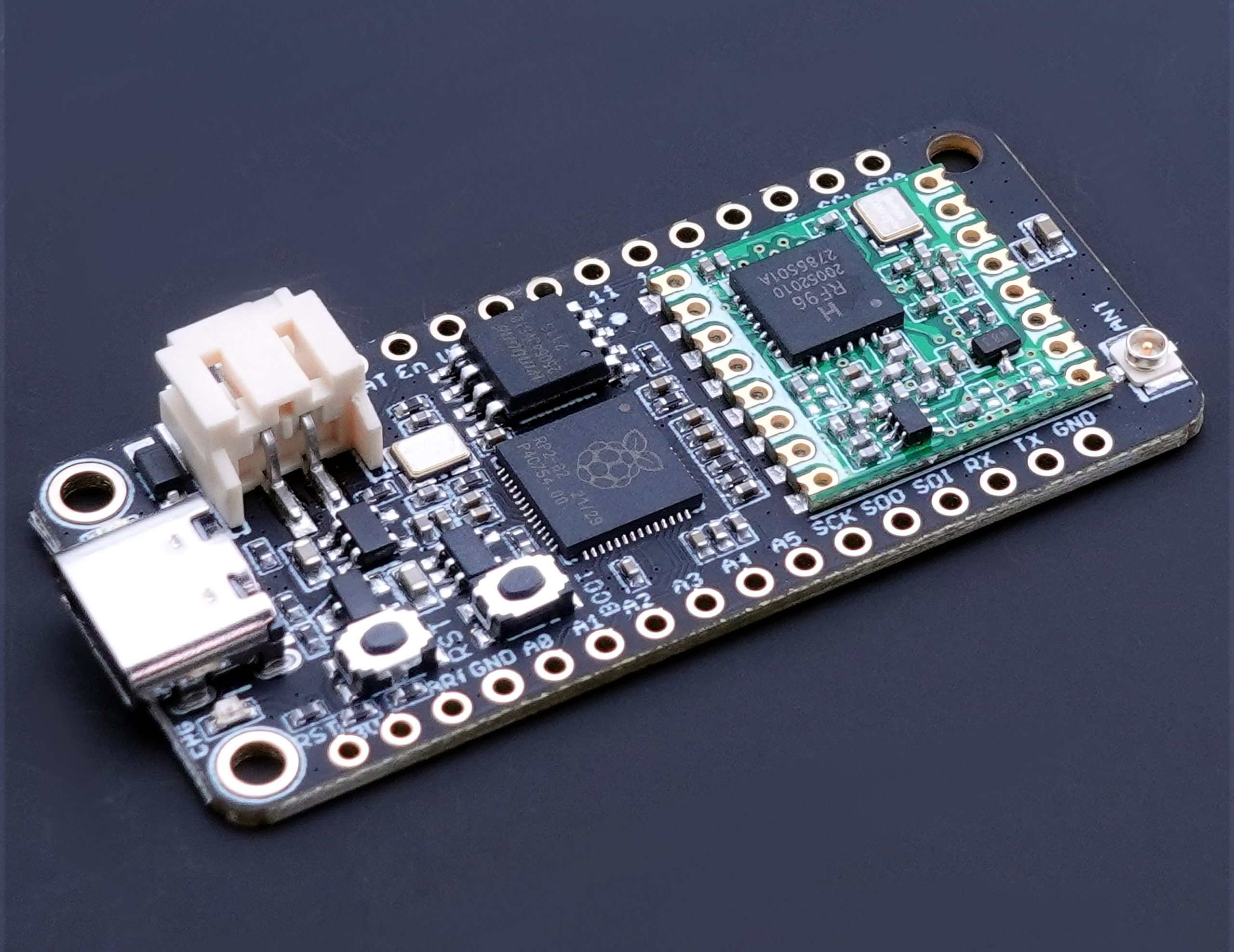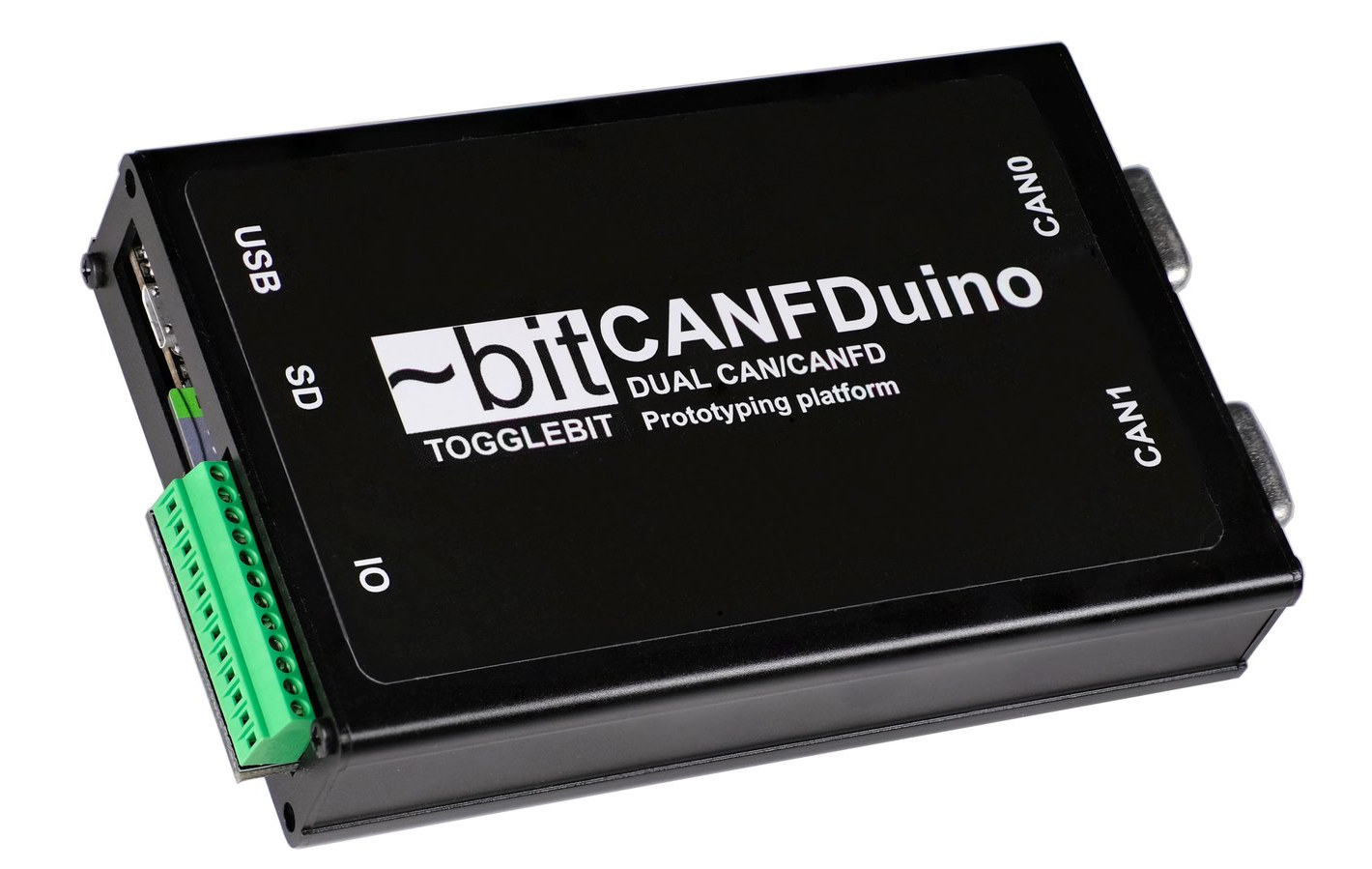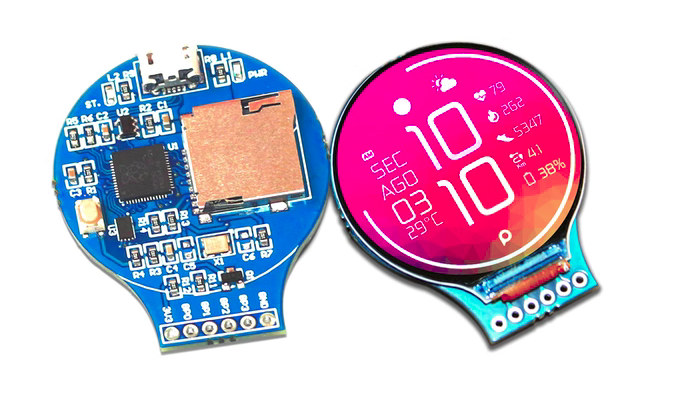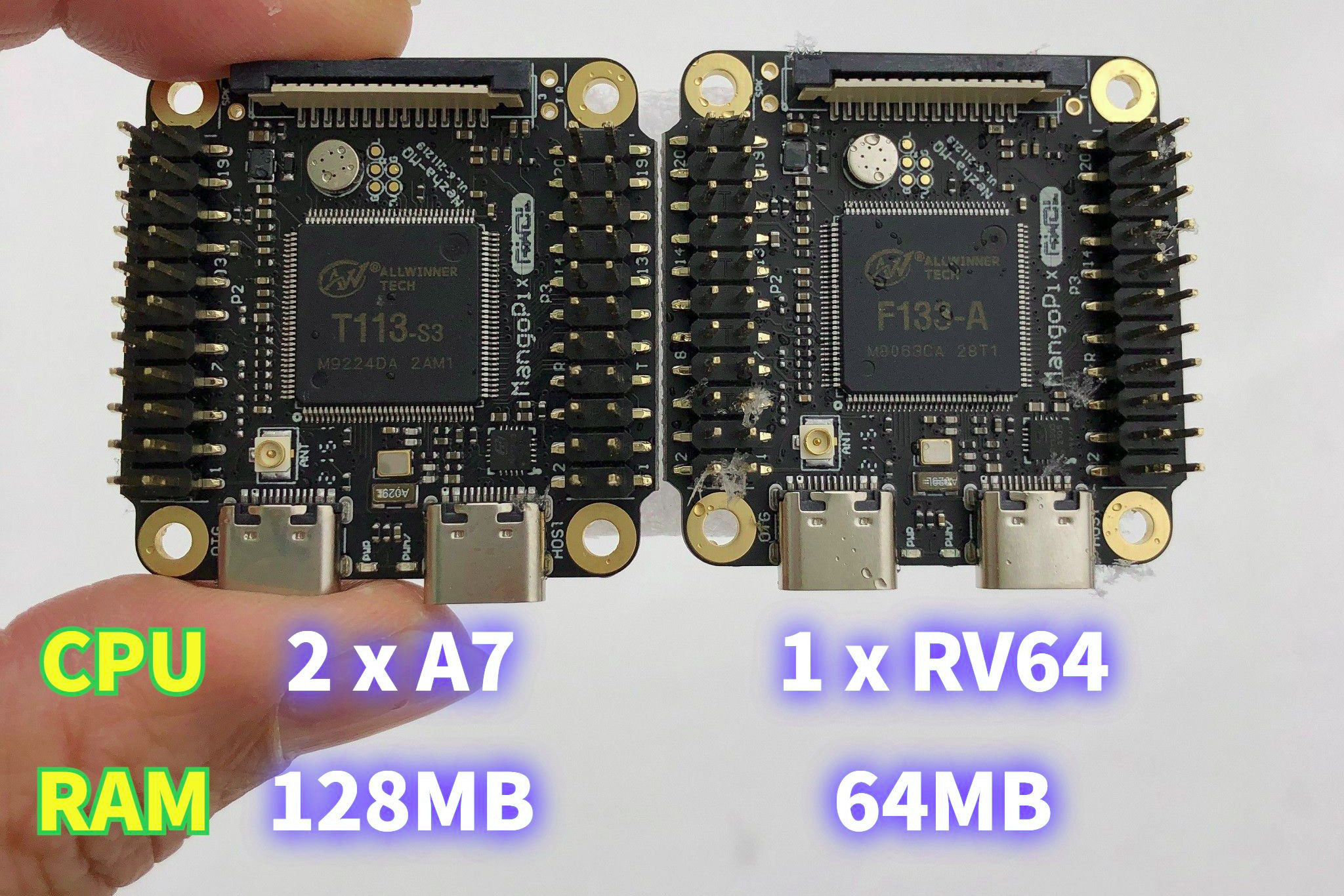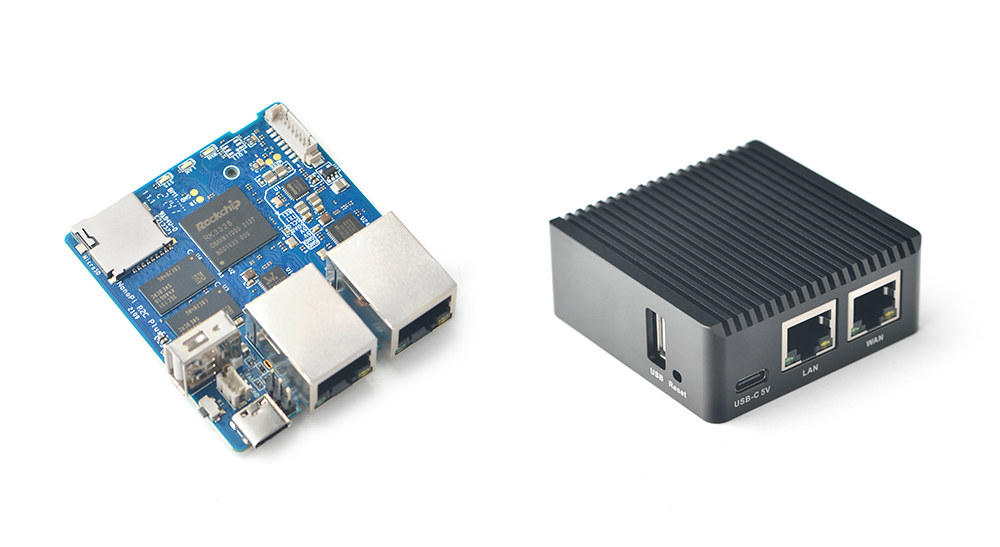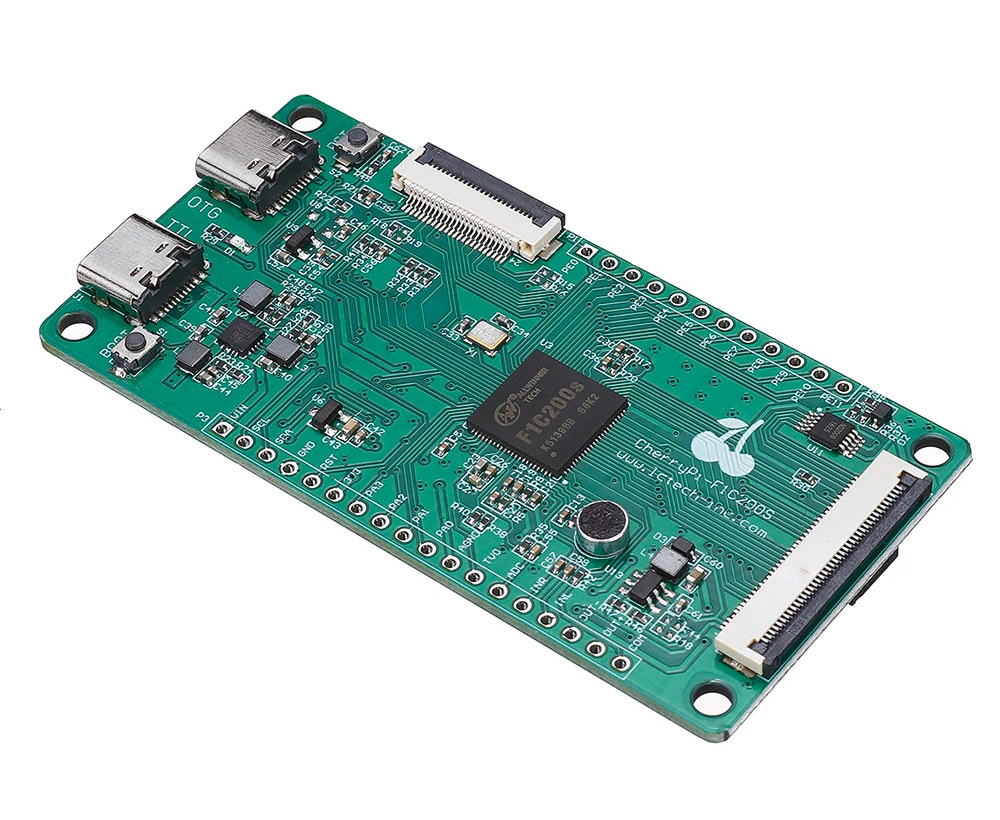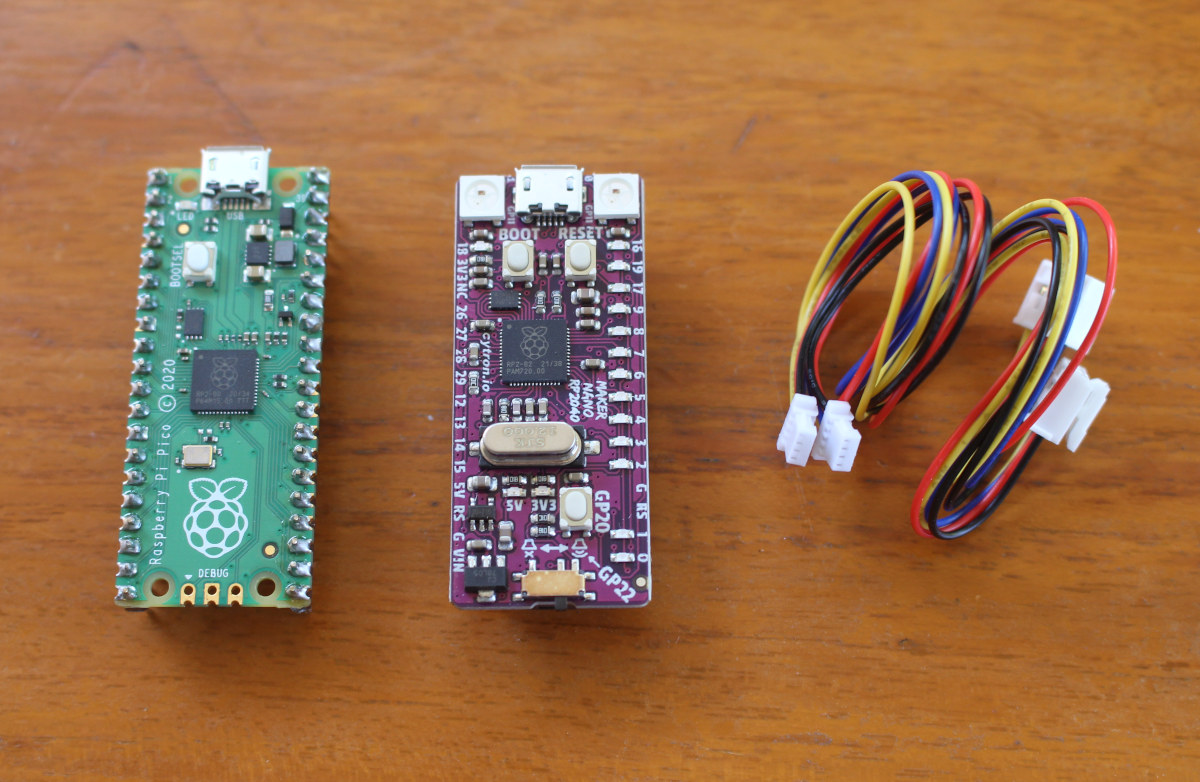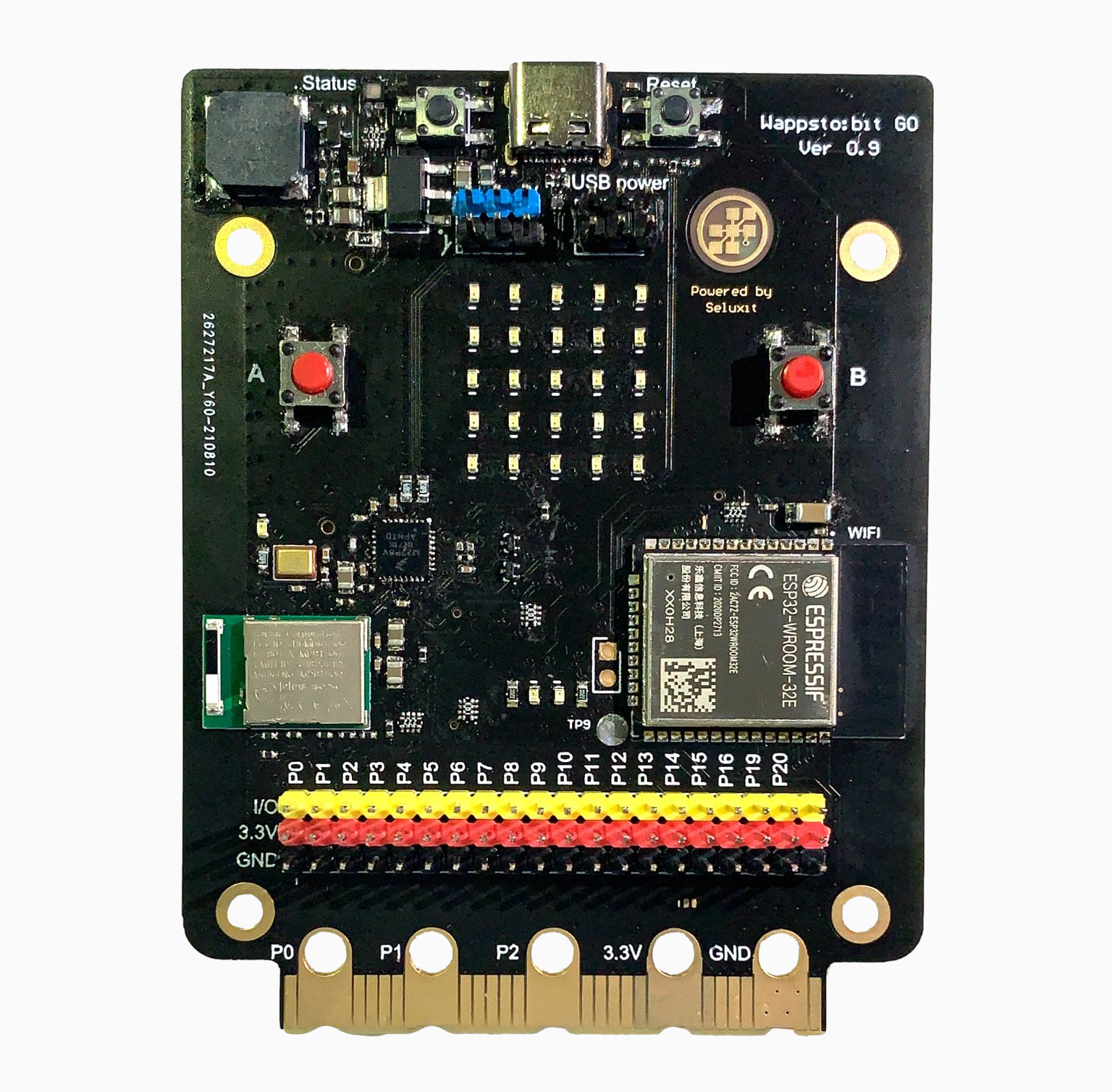Invector Labs is now offering a variant of the WiFi-based Challenger RP2040 board with a LoRa radio. The Challenger RP2040 LoRa board features the Hope RF RFM95W LoRa radio transceiver module instead of the ESP8285 WiFi chip found in the original board. Raspberry Pi RP2040 has already been used in combination with a LoRa module, notably in Rakwireless RAK11300 WisDuo LPWAN module and the “LoRa Expansion for Pico“, a baseboard for Raspberry Pi Pico equipped with a LoRa module, but it’s the first time I see the combination in a development board form factor, which as a potential bonus following Adafruit Feather form factor. Challenger RP2040 LoRa board preliminary specifications: MCU – Raspberry Pi RP2040 dual-core Cortex-M0+ MCU @ 133MHz with 264KB SRAM Storage – 8MB flash Wireless module – Hope RF RFM95W connected via SPI channel and some GPIOs 168 dB maximum link budget. +20 dBm – 100 mW […]
CANFDuino – A Dual CAN Arduino based platform with enclosure, proto area (Crowdfunding)
CANFDuino is an Arduino-compatible dual CAN bus platform with CAN FD support that can be used for both prototyping and deployment on the field thanks to its rugged aluminum enclosure, two DB9 CAN connectors, an IO terminal block. The board is powered by a Microchip SAMC21G18A microcontroller with CAN-FD support, a MicroSD card slot, a micro USB port, various analog and digital I/O, as well as a prototyping area allowing users to solder their own components to the board if needed. CANFDuino specifications: MCU – Microchip SAMC21G18A Arm Cortex-M0+ microcontroller @ up to 64 MHz with 32KB SRAM, 256KB flash Storage – MicroSD card slot I/Os 2x DB9 connectors with CAN/CAN-FD up to 5 Mbps 12-way screw terminal block IO Through holes with 10x analog inputs Up to 24 digital IO w/14x PWM 2x UART (+1 UART2USB) 1x I2C,1x SPI 3.3V and 5V supplies Prototyping area for soldering extra […]
Round color LCD board comes in Raspberry Pi RP2040 or ESP8266 flavor (Crowdfunding)
Roundy is a board with a 1.28-inch round color LCD with 240 x 240 resolution that is offered with either a Raspberry Pi RP2040 MCU or an ESP-12E WiFi module, with the variants respectively called RoundyPi and RoundyFi. Both boards come with a micro USB port for power and programming, a button for flashing the firmware, and six pins with power signals and four GPIOs. One difference is that the Raspberry Pi RP2040 board includes a MicroSD card for data storage. Roundy specifications: MCU / module RoundyPi – Raspberry Pi RP2040 dual-core Cortex-M0+ microcontroller @ up to 133 MHz with 256KB SRAM RoundyFi – ESP-12E module with ESP8266 microcontroller @ up to 160 MHz with 160KB SRAM, 4MB SPI flash External storage (RoundyPi only) – MicroSD card socket Display – 1.28-inch round LCD with 240 x 240 resolution, 65k colors; GC9A01 SPI display driver. (It appears to be that model) […]
RISC-V or Arm? This tiny 4x4cm Linux board with WiFi offers both options
Last fall, we wrote about Allwinner D1s/F133-A RISC-V processor and the upcoming MangoPi MQ1, a tiny 4x4cm board based on the processor. The board is not for sale, but we have more details, and the company is also working on an Arm version equipped with Allwinner T113-S3 dual-core Cortex-A7 processor that is pin-to-pin compatible with F133-A SoC. The Allwinner F133-A board will finally be called MangoPi Nezha-MQ, or MangoPi MQ for shorts, and come with 64MB on-chip RAM while the Allwinner T113-S3 board, with 128MB on-chip RAM, will be named MangoPi MQ-Dual. Both are fitted with a Realtek RTL8189-based Wi-Fi module, offer display and camera interfaces, two USB-C interfaces, and headers for GPIOs. MangoPi MQ RISC-V or Arm Linux board MangoPi MQ/MQ-Dual specifications: SoC (one or the other) MangoPi MQ – Allwinner D1s/F133-A 64-bit RISC-V processor @ 1 GHz with 64 MB DDR2 MangoPi MQ-Dual – Allwinner T113-S3 32-bit dual-core […]
NanoPi R2C Plus dual GbE router board adds 8GB eMMC flash
NanoPi R2C Plus is a variation of NanoPi R2C dual Gigabit Ethernet SBC powered by a Rockchip RK3328 processor that adds an 8GB eMMC flash for storage and replaces a 10-pin 2.54mm pitch I/O header with an 8-pin 1.25mm pitch header. FriendlyELEC introduced the NanoPi R2C last August as a lower-cost version of NanoPi R2S replacing Realtek RTL8211E Gigabit Ethernet transceiver with a Motorcomm YT8521S chip for availability and pricing reasons. NanoPi R2C Plus is just an evolution of the original design. NanoPi R2C Plus specifications: SoC – Rockchip RK3328 quad-core Cortex-A53 @ 1.5 GHz with Arm Mali-450MP2 System Memory – 1GB DDR4 RAM Storage – 8GB eMMC 5.1 flash, MicroSD Slot, SPI flash footprint Connectivity 1x Gigabit Ethernet (WAN) up to 941 Mbps (measured) via MotorComm YT8521S Gigabit Ethernet transceiver 1x Gigabit Ethernet (LAN) up to 941 Mbps (measured) via Realtek RTL8153B USB 3.0 to Ethernet controller USB – […]
More Allwinner F1C200s ARM9 boards: MangoPi R3 and CherryPi-F1C200S
I wrote about the Widora TINY200 board based on Allwinner F1C200s ARM9 processor with 64MB built-in RAM, up to 512MB NAND flash, LCD and camera interfaces in April 2020. I was just informed more similar Allwinner F1C200s boards had recently shown up with Widora MangoPi R3 that’s basically the same as TINY200, and CherryPi-F1C200S with similar dimensions and features, but a different ports arrangement. Let’s have a look at both. MangoPi R3 MangoPi R3 specifications are the same as the ones for Tiny200 board, but they selected the 128MB NAND flash storage option, and changed the USB-TTL chip: SoC – Allwinner F1C200s ARM926EJS processor @ 420 MHz (overclockable to 700 MHz) with 64MB DDR RAM Storage – 128MB NAND flash and MicroSD card slot Display I/F – 40-pin RGB565 display interface and 6-wire touch interface Camera I/F – 24-pin DVP camera interface compatible with OV2640, GC0328, etc. Audio – Onboard […]
Maker Nano RP2040 offers Arduino Nano, Grove and Qwiic modules compatibility
Cytron Maker Nano RP2040 is board similar to Raspberry Pi Pico but with Arduino Nano form factor, a proper reset button, two RGB LEDs, single color LEDs for some GPIOs, a buzzer, as well as two Qwicc/STEMMA QT connectors that can also be used to connect Seeed Studio Grove modules using provided conversion cables. While the board mostly aims to be an Arduino Nano/Maker Nano upgrade, there are some notable differences with the I/O voltage being limited to 3.3V without 5V tolerance, and there are only four ADC inputs (A0 – A3) instead of eight on the Arduino Nano. Maker Nano RP2040 specifications: MCU – Raspberry Pi RP2040 dual-core Arm Cortex-M0+ microcontroller @ 125 MHz with 264KB internal RAM Storage – 2MB flash Audio – Piezo buzzer with mute switch Expansion 2x 15-pin headers with 22x GPIOs, 14x of which with LEDs,2x I2C, 2x UART, 2x SPI, 14x PWM, 4x […]
Wappsto:bit GO – An ESP32 board with plenty of sensors, Micro:bit compatibility (Crowdfunding)
Wappsto:bit GO is an ESP32 board compatible with BBC Micro:bit accessories thanks to a compatible edge connector, but adding WiFi to Bluetooth LE, and offering some extras compared to Elecrow Mbits ESP32-based BBC Micro:bit clone. The new board is notably equipped with a wider range of sensors including a light sensor, a magnetometer, and sound sensor beside the temperature sensor and accelerometer present in the original board, and it also exposes GPIO through a more traditional 2.54-pitch header to facilitate the integration of a wider variety of add-on boards. Wappsto:bit GO specifications: Wireless modules ESP32-WROOM-32E module with ESP32 dual-core microcontroller, 4MB flash, 2.4 GHz WiFi and Bluetooth LE connectivity, built-in PCB antenna Raytac MDBT50Q-512K Bluetooth 5.2 module based on nRF52833 with 512KB Flash MCU – NXP Kinetis KL2 Arm Cortex-M0+ microcontroller (MKL27Z256VFM4 ) with 256KB Flash (for USB port handling) Display – 25 LED matrix Sensors Temperature sensor, Light sensor […]


